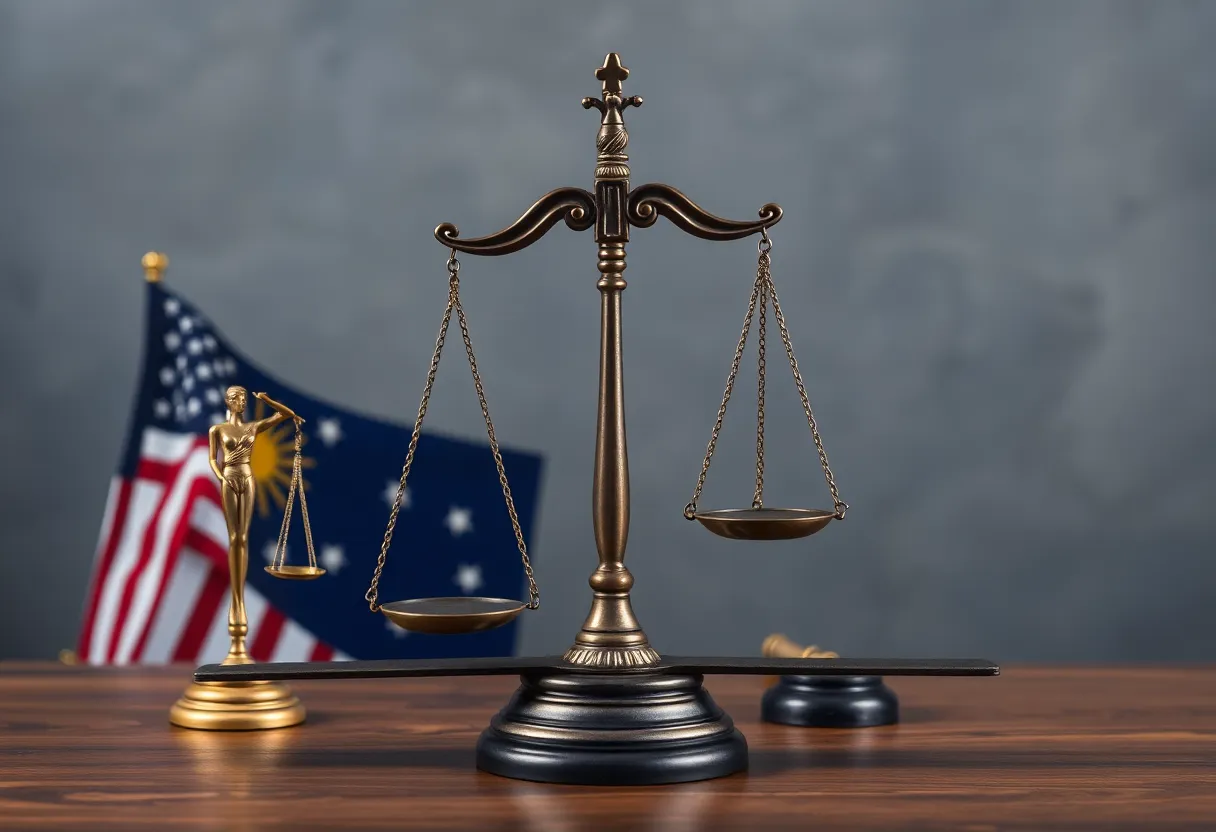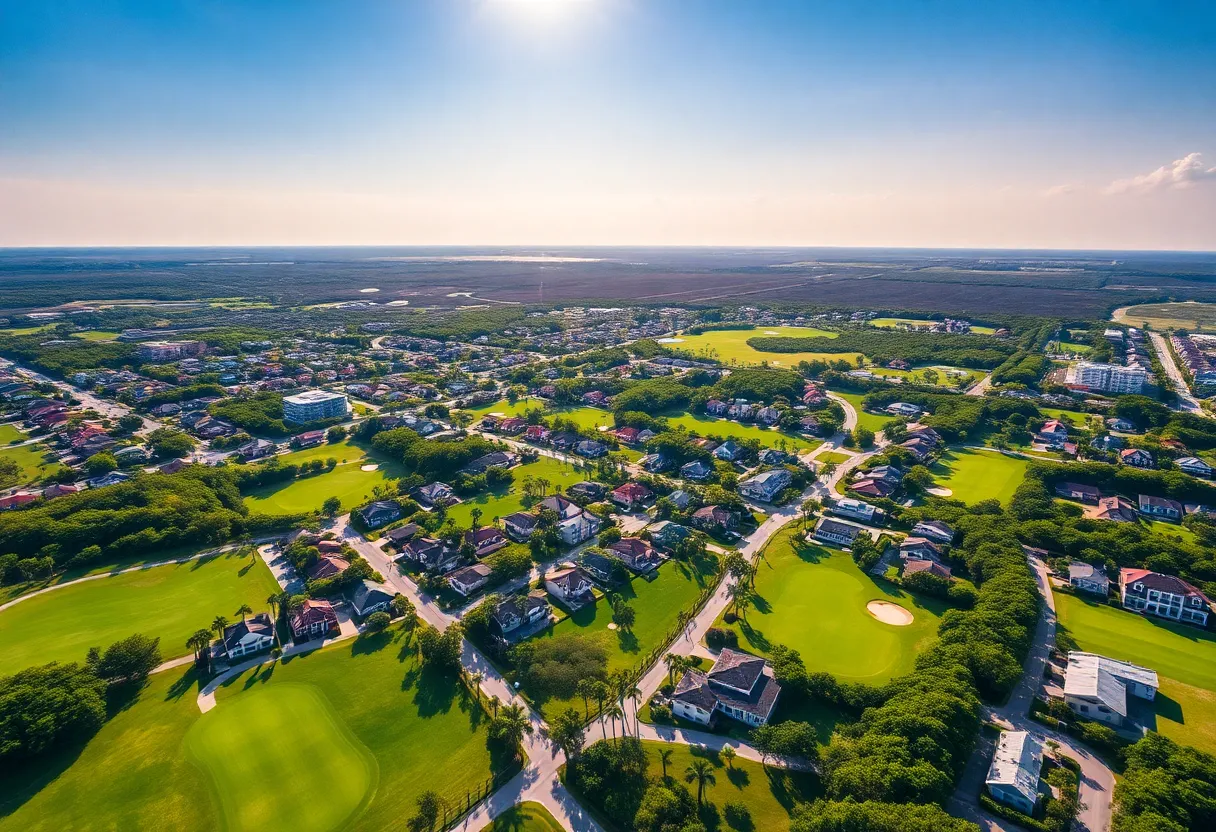News Summary
The Trump administration’s cancellation of visas for six foreign nationals, allegedly in response to criticisms of right-wing influencer Charlie Kirk, has sparked a heated debate over free speech. Critics argue that the systematic cancellations undermine democratic values, raising concerns over the use of social media content in visa vetting and potential government overreach. Legal challenges regarding these actions are underway, as many believe they aim to silence dissenting voices. The controversy highlights a crucial discussion about balancing national security and freedom of expression in today’s society.
Visa Cancellations Spark Controversy Over Free Speech and Criticism of Influencer
In a surprising turn of events, the Trump administration is facing a significant backlash for its decision to cancel the visas of at least six foreign nationals. The move is reportedly part of a broader effort to stifle criticism directed at right-wing influencer Charlie Kirk, particularly in response to online postings that referenced Kirk’s death. As you can imagine, this has raised many eyebrows and stirred up quite a conversation around the issues of freedom of speech and government oversight.
Systematic Visa Cancellations Unveiled
The State Department announced that it had executed systematic visa cancellations for individuals hailing from a diverse array of countries including Argentina, South Africa, Mexico, Brazil, Germany, and Paraguay. The rationale behind these cancellations? Well, the administration has firmly stated that the U.S. has no obligation to host those who “wish death on Americans.” This reasoning has, understandably, opened up a can of worms regarding what constitutes freedom of speech in the digital age.
Critics Weigh In on the Issue
Conor Fitzpatrick, a representative from the Foundation for Individual Rights and Expression, voiced criticism over the administration’s actions, asserting that these measures threaten to erode the very freedoms that are foundational to American democracy. Another legal expert, Carrie DeCell from the Knight First Amendment Institute, echoed these sentiments, arguing that the use of social media mockery as grounds for visa revocation is tantamount to censorship.
Social Media’s Role in Visa Vetting
This isn’t the first time visa revocations have made headlines. The current wave of cancellations is part of a wider trend that the State Department has been leaning into since 2019—what has been termed “extreme vetting.” This method expands the vetting process to include detailed examinations of social media activities, introducing expansive new grounds for visa denials. It raises important questions about government surveillance and the extent to which it is monitoring social media content.
Examples of Cited Posts
In a rather eyebrow-raising case, a South African national had their visa canceled following a post that was viewed by just 2,344 people. This post poked fun at the Americans grieving Kirk’s passing. Meanwhile, a German national faced similar consequences for a post that translated to, “when fascists die, democrats don’t complain.” The government interpreted this as a celebration of Kirk’s death, further highlighting the razor-thin line between satire and the government’s perception of harmful speech.
The case of Brazilian comedian Tiago Santineli adds another layer to this complicated situation. His Twitter posts included inflammatory remarks about Kirk, such as a pointed “Good riddance!” Following these comments, he too found himself on the receiving end of a visa revocation. He referred to Kirk in critical terms, dubbing him “Little Charlie Deep Throat,” raising questions on how far the government is willing to go in regulating speech.
A Wider Trend and Legal Challenges
The crackdown does not end there; it also caught other prominent personalities in its crosshairs. Enrique “Kike” Gamarra, a Paraguayan talk show host, criticized Kirk on-air and faced visa cancellation as a result. Such actions appear to fall in line with Executive Order 14188, which while aimed at combating antisemitism, has drawn criticism for potentially misusing free speech as a rationale for their enforcement.
All of this has led to legal challenges regarding the free speech rights of visa holders, following complaints that the cancellations are being used as tools to suppress political activism. In an eye-opening judicial moment, a Georgia federal judge issued a temporary restraining order that mandated the restoration of 133 students’ F-1 visas that had previously been stripped, pointing out due process rights.
Conclusion: Balancing Free Speech and National Policy
As it stands, the controversy surrounding these visa cancellations has sparked a vital conversation about the balance between maintaining national security and upholding the core ideals of free expression. The overarching fear is that these actions could usher in a new era of quietude, where the government may inadvertently—or perhaps purposefully—intimidate voices that dare to speak against those in power. Many are watching closely to see how this situation will unfold, knowing well that the implications could be vast and long-lasting.
Deeper Dive: News & Info About This Topic
- The Guardian: US Visas Charlie Kirk Reaction
- Wikipedia: Freedom of Speech
- Chosun: Article on US Visa Policy
- Google Search: Visa Cancellations Free Speech
- CBS News: Student Protesters on Visas
- Encyclopedia Britannica: Censorship
- New York Times: Trump and Student Visas
- Google News: Trump Visas

Author: STAFF HERE ORLANDO WRITER
ORLANDO STAFF WRITER The ORLANDO STAFF WRITER represents the experienced team at HEREOrlando.com, your go-to source for actionable local news and information in Orlando, Orange County, and beyond. Specializing in "news you can use," we cover essential topics like product reviews for personal and business needs, local business directories, politics, real estate trends, neighborhood insights, and state news affecting the area—with deep expertise drawn from years of dedicated reporting and strong community input, including local press releases and business updates. We deliver top reporting on high-value events such as Orlando International Fringe Theatre Festival, Megacon Orlando, and Central Florida Fair. Our coverage extends to key organizations like the Orlando Economic Partnership and Hispanic Chamber of Commerce Metro Orlando, plus leading businesses in leisure and hospitality that power the local economy such as Walt Disney World Resort, AdventHealth, and Universal Orlando. As part of the broader HERE network, including HEREJacksonville.com, HEREPetersburg.com, HERETallahassee.com, and HERETampa.com, we provide comprehensive, credible insights into Florida's dynamic landscape.




